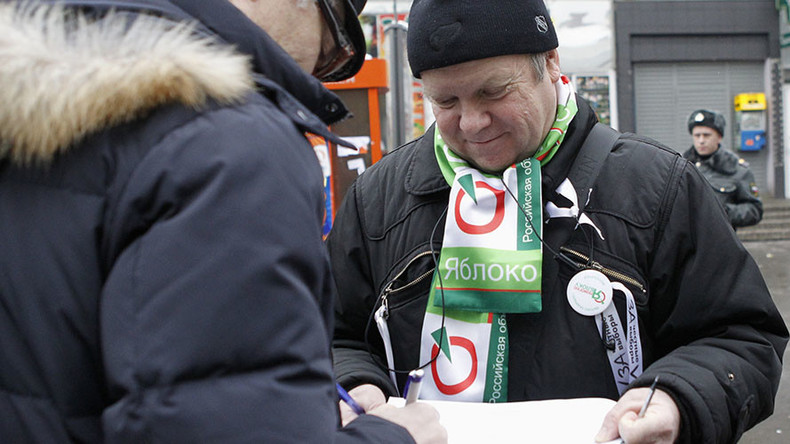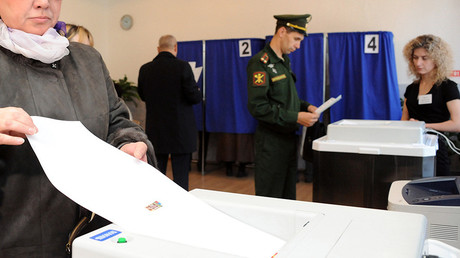Liberals launch plan for more power to the people over election of local officials

The initiative was launched by Yabloko founder Grigory Yavlinsky on the change.org web portal, which specializes in providing a platform for various petitions. The party has already begun gathering signatures for its campaign.
“Mayors in 1,555 out of 2,044 of our country’s towns and cities are getting appointed and displaced without any regard to the opinion of those who live in these cities and towns,” reads an explanatory note attached with the petition.
“Strong and popular candidates can be barred from taking part in gubernatorial elections by means of an artificial tool – the so-called municipal filter. The upper house of parliament, which should represent the regions’ positions at the federal level, is almost wholly comprised of people who are practically unknown in places that they allegedly represent.”
The Yabloko founder then explained that in his opinion regional and municipal leaders who are appointed from the federal center cannot understand the real problems and needs of the population, and are therefore not in a position to defend the interests of the people to the federal authorities, instead just following instructions from the center.
“I, together with my comrades from the Yabloko party and our allies – independent politicians from various Russian regions – demand the return of the right to elect governors, mayors and senators. These elections should be direct, without some invented filters and coordination, with the right to control the officials’ work and make them responsible before the people,” reads the note.
Yavlinsky stated that he intended to gather at least 100,000 signatures for the petition, a symbolic figure as protests reaching this number of signatures have to be considered by parliament under Russian law. However, to achieve this result the signatures should be collected on a special website, Russian Public Initiative (ROI.RU). The site requires registration to filter out those who are not Russian citizens and to prevent multiple signatures from a single person.
Yabloko launched the campaign after elections commissions in Moscow and Yaroslavl regions turned down its request to hold referendums on the issue, citing technical reasons.
In 2004, President Vladimir Putin replaced gubernatorial elections with direct presidential appointments in a bid to bring more stability and purge corrupt regional elites.
Just under a decade later, voting was returned in order to promote democracy and stimulate the development of the Russian political system. However, the new law ordered that candidates for the posts of regional governors or heads of internal republics must present the signatures of members of legislative assemblies from the regions they are running in.
The necessary number of signatures, called a “municipal filter,” can be between 5 and 10 percent of the total number of lawmakers in the region, including members of the municipal and district legislatures. The specific figure is set by each region separately.
The municipal filter system caused protests from opposition politicians and parties from the moment it appeared. In 2012, federal MPs representing the Communist Party and the center-left party Fair Russia addressed the Constitutional Court with a complaint claiming that the law violated both passive and active election rights of Russian citizens. In December 2012, the Constitutional Court ruled that the federal authorities’ moves aimed at barring persons who lack sufficient support from voters at the polls did not violate the constitution.











